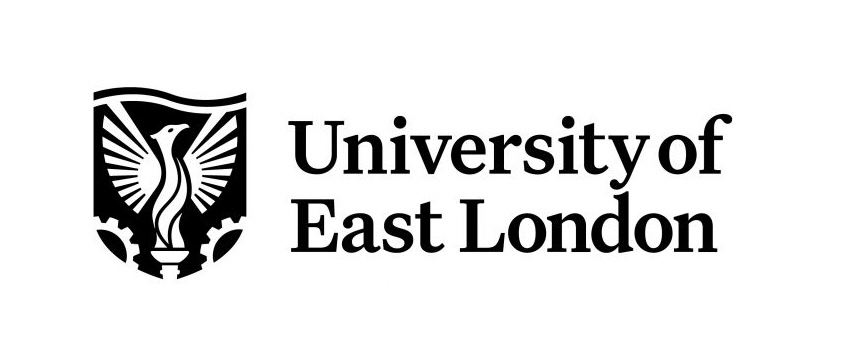Are you seeking a top-quality education in a country renowned for its rich history and vibrant culture?
Studying in France provides a pathway to a bright future, with globally recognized universities offering innovative teaching methods and an unforgettable student experience. Additionally, post-study work opportunities enhance the overall appeal, making France an ideal destination for higher education.
Why Study in France
Top Universities in France: Rankings and Fees
When selecting a university, it’s crucial to consider both the cost structure of your desired course and global university rankings. This approach helps you assess and understand the standings of universities and the position of your preferred institution on the world stage. According to the QS World University Rankings 2025, the top universities in France are:
Institution | QS Ranking 2025 (Globally) |
Université PSL (Paris Sciences & Lettres) | 24 |
Institut Polytechnique de Paris | 46 |
Sorbonne University | 63 |
Université Paris-Saclay | 73 |
The Best Courses to Study in France
France is globally recognized for its high-quality education across a variety of disciplines. Some of the most sought-after courses offered in French universities include:
Cost of Studying and Living in France
Cost of Studying in France
The cost of studying in France depends on the type of degree, the university, and whether you choose a public or private institution. Public universities in France offer significantly lower tuition fees, especially for EU students, while private institutions may have higher costs. Below is an estimate of average tuition fees in France:
Study Program | Average Annual Tuition Fees in EUR |
Bachelor’s Degree | €2,770 – €10,000 |
Master’s Degree | €3,770 – €20,000 |
MBA | €10,000 – €40,000 |
Engineering Programs | €600 – €20,000 |
Medical Studies | €500 – €10,000 |
Cost of Living in France
When planning your studies in France, it’s essential to budget for daily expenses such as groceries, transportation, social activities, and unforeseen emergencies.
You should also consider these common expenses when creating your budget:
Expense | Approximate Cost (Monthly in EUR) |
Accommodation (Rent) | €300 – €1,200 (varies by city) |
Food & Groceries | €200 – €400 |
Transportation | €30 – €75 (monthly pass) |
Health Insurance | €20 – €50 |
Utilities (Electricity, Internet, etc.) | €50 – €150 |
Entertainment & Leisure | €50 – €150 |
Paris tends to be more expensive than other cities like Lyon, Toulouse, or Nantes. Many students also benefit from discounts on transportation, food, and cultural events through student cards.
Please note that all figures are indicative.
Try our handy Cost of Living Calculator to learn more about living expenses according to your lifestyle.
Scholarships for International Students in France
France offers numerous scholarships to support international students in their academic journey. Many of these scholarships are designed to develop future leaders and professionals who can contribute to their home countries. Scholarships are available for both undergraduate and postgraduate studies.
Here are some popular government and institutional scholarship programs in France that Pakistani students can apply for:
Scholarship Name | Description |
Eiffel Excellence Scholarship | Offered by the French Ministry for Europe and Foreign Affairs, this scholarship supports master’s and PhD students in fields like engineering, law, and economics. Covers tuition, monthly stipend, and other expenses. |
Campus France Scholarships | A collection of scholarships offered by the French government, universities, and organizations for international students. |
Erasmus+ Scholarships | Funded by the European Union, this program provides financial support for students pursuing higher education and exchange programs in France. |
Charpak Scholarship Program | Funded by the French Embassy in India, but also open to Pakistani students in some cases. Covers tuition, monthly allowance, and visa fee waivers for master’s and doctoral students. |
Université Paris-Saclay International Master’s Scholarships | A merit-based scholarship for outstanding international students applying for master’s programs. Offers a financial grant and covers travel expenses. |
Many French universities also offer institution-specific scholarships based on academic excellence and financial need.
Student Visa Requirements in France
The type of student visa you need for France depends on the length and nature of your studies. Below is an overview of the main student visa categories and their application requirements:
Type of Student Visa | Purpose | When to Apply | Arrival in France |
Short-Stay Student Visa (VLS-T) | For courses or programs lasting less than 3 months (language courses, summer schools, etc.). | At least 3 months before travel. | Up to 3 months before the start of your program. |
Long-Stay Student Visa (VLS-TS) | For degree programs lasting more than 6 months (bachelor’s, master’s, PhD). | 3-6 months before travel. | Up to 3 months before the start of your program. |
Temporary Long-Stay Visa | For studies lasting between 3-6 months, with no option for renewal. | At least 3 months before travel. | Up to 3 months before the start of your program. |
General Requirements for a French Student Visa
To apply for a student visa for France, you will typically need the following:
Job Opportunities in France
France offers a wide range of job opportunities, allowing students to gain valuable skills and build successful careers. Whether you’re looking for part-time jobs, internships, or full-time graduate positions, there are plenty of opportunities across various industries.
Moreover, many French universities have dedicated career services to help students find internships and job placements. Sectors such as technology, finance, engineering, and luxury fashion offer excellent prospects for international students to gain work experience and expand their professional network.
Campus France Admission Assistance
Campus France provides support to international students who are looking for university placements in France. If you miss admission deadlines or need assistance in choosing an alternative program, Campus France can help you explore available options and guide you through the application process.
Click here to learn more about Campus France.
Student Essential Services for Pakistani Students
Our expert counselors are here to offer free guidance on essential arrival services, including:
Making yourself feel at home in Newcastle shouldn’t take long – the locals here will go out of their way to welcome you with open arms.
London – it’s one of the world’s largest, most happening cities. That can be a little overwhelming, but for the most part, incredibly exciting.
Hover over the city cards to discover more!
Scotland is probably best known for being a land of men in skirts (kilts), questionable dishes made out of a sheep’s stomach (haggis) and accents that can be pretty hard to work out.
Hover over the city cards to discover more!
Inspired by Christian Bale or fashion designer Julien Macdonald, Wales is the home of creativity and culture.


























Studying in the France offers a variety of experiences. The cultural and traditional values of the France attract several international students every year. The popular areas of employment in the France are as follows:

Maximum of 20 hours per week for regular students, Maximum of 10 hours per week for language center students.

Students completing a Bachelors or Masters program get a work VISA of 2 years. PhD graduates get a work VISA of 3 years.

The tuition fees in French universities vary depending on the type of institution:
Degree Level | Tuition Fees (Annual in EUR) |
Bachelor’s Degree | €2,770 – €10,000 |
Master’s Degree | €3,770 – €20,000 |
PhD/Doctorate | €380 – €3,000 (public universities) |
Private Universities | €8,000 – €30,000 |




